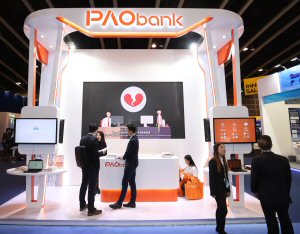Innovation and technology (I&T) is rapidly transforming every field of business – from accounting to yachting – and I&T itself is a burgeoning economic activity. As a service centre supporting a broad spectrum of activity in the dynamic East-Asian region, Hong Kong is well-placed to drive this transformation forward.The Hong Kong Special Administrative Region Government actively promotes I&T in eight areas – increasing resources for research and development, pooling technology talent, providing investment funding and I&T infrastructure, reviewing existing legislation and regulations, opening up government data, leading changes to procurement arrangements, and popularising science education. Authorities have committed more than HK$100 billion (US$12.8 billion) to initiatives in these eight areas.
Innovation hub

A key advantage of Hong Kong is its status as a hub for the Guangdong-Hong Kong-Macao Greater Bay Area development zone, which is already home to many high-technology manufacturers and site of much R&D activity and is now being transformed into an international innovation and technology hub.
Typifying this drive, the government is turning a greenfield site on the Hong Kong-Shenzhen boundary, the Lok Ma Chau Loop – into the Hong Kong-Shenzhen Innovation and Technology Park.Universities and research institutions in Hong Kong can apply for science and technology funding of the Central Government for use in Hong Kong, injecting further impetus into Hong Kong’s research sector.Hong Kong is already a leading digital economy, consistently achieving top rankings in digital readiness and Internet access capabilities. Hong Kong has 11 submarine cable systems and operates 12 satellites for external communications. Several submarine cable systems will be ready in the coming two to three years, enhancing connectivity with other parts of the world.The government is also implementing a HK$2 billion Re-industrialisation Funding Scheme within 2020 to subsidise manufacturers, on a matching basis, to set up smart production lines in Hong Kong. A further HK$2 billion will be provided to the Hong Kong Science and Technology Parks Corporation (HKSTP) to develop a Microelectronics Centre in the Yuen Long Industrial Estate.The Cyberport high-technology development park will receive HK$5.5 billion to expand its campus, providing additional space for technology companies and start-ups.Staying with science parks, the government will establish two InnoHK research clusters at Hong Kong Science Park with focus on artificial intelligence (AI) and robotics technologies and healthcare technologies. The first batch of laboratories will be set up progressively in early 2020. The government will also examine the setting up of the third InnoHK research cluster to further promote global research collaboration. These are part of the government’s InnoHK Clusters scheme.

The Hong Kong Science Park in Sha Tin – on the shores of Tolo Harbour and adjacent to the Chinese University of Hong Kong – is home to more than 710 technology companies.Cyberport, on the southwest coast of Hong Kong Island, is a creative digital community with about 1,500 companies.HKSTP, which runs the Science Park among other industrial estates, has set up a subsidiary company – Hong Kong-Shenzhen Innovation and Technology Park Limited – to build, operate, maintain and manage the Hong Kong-Shenzhen Innovation and Technology Park at Lok Ma Chau Loop.Several other bodies support I&T development in Hong Kong, including the Hong Kong Applied Science and Technology Research Institute which focuses on applied research (fintech, intelligent manufacturing, next generation network, health technologies and smart city).I&T is a key element of many Hong Kong Trade Development Council (HKTDC) events, including the HKTDC SmartBiz Expo which features an Invention Zone (main picture).The Hong Kong Academy of Sciences and The Hong Kong Young Academy of Sciences advise the government on research and technology-related policies.The United States’ Massachusetts Institute of Technology set up its first overseas Innovation Node in Hong Kong in 2016, while Karolinska Institutet (Sweden) opened a research facility at Science Park in 2016 to strengthen research in regenerative medicine.Guangzhou Institutes of Biomedicine and Health under the Chinese Academy of Sciences (CAS) set up a stem-cell and regenerative medicine research centre at Science Park in 2017.In addition to overseas engagement, there is extensive Hong Kong-mainland collaboration, with 16 State Key Laboratories in Hong Kong and six Hong Kong branches of the Chinese National Engineering Research Centres.The Ministry of Science and Technology (MOST) and the HKSAR Government signed the “Arrangement on Enhancing Innovation and Technology Cooperation between the Mainland and Hong Kong” and the “Agreement on Commencing Jointly Funded Projects between the MOST and the Innovation and Technology Bureau of the HKSAR Government” in September 2018.
Start-ups

The tally of start-ups in Hong Kong has risen sharply, along with start-up jobs, according to the 2019 start-up survey by Invest Hong Kong. Start-ups in Hong Kong receive support from both the public and private sectors. The government has set up a HK$2 billion Innovation and Technology Venture Fund set up to co-invest on a matching basis with selected private venture capital funds in Hong Kong. The government has also extended coverage of the Researcher Programme, the Postdoctoral Hub and the Public Sector Trial Scheme to all technology companies conducting research and development activities in Hong Kong.In the private sector, Alibaba Group has launched a HK$1 billion Hong Kong Entrepreneurs Fund while Sequoia Capital has initiated the Hong Kong X-Tech Startup Platform.The Cyberport Incubation Programme and HK$200 million Cyberport Macro Fund provide initial venture capital funding support for start-ups to scale up and accelerate their progress. In 2018, the government injected HK$200 million into Cyberport to strengthen support for its tenants and start-ups.HKSTP also has incubation programmes and a Corporate Venture Fund. The InnoCell facility is being built adjacent to Hong Kong Science Park to provide residential units with shared working spaces to foster development of the I&T ecosystem in Hong Kong. It is expected to be completed by the end of 2020.The Technology Talent Admission Scheme has been extended to cover companies outside the HKSTP and Cyberport pools, and to cover new technology areas. The Technology Voucher Programme has been regularised, with enhancement measures introduced to incentivise more local companies and institutions to use technology to improve efficiency and services.
Smart city
The Hong Kong Smart City Blueprint sets out a vision to establish a world-class smart city. Major areas are “Smart Mobility”, “Smart Living”, “Smart Environment”, “Smart People”, “Smart Government” and “Smart Economy”.Smart City key infrastructure projects include the “iAM Smart” Platform (electronic identity), smart lampposts, Next Generation GovCloud and Big Data Analytics Platform.
Fintech

More than 600 fintech companies operate in Hong Kong; 76% of them focusing on the business to business (B2B) market; with more than US$1.1 billion raised in 2014 to 2018.Leading fintech infrastructure projects include the Faster Payment System (3.7 million registrations as of October 2019) and a blockchain-based “eTradeConnet” trade finance platform. Hong Kong has eight virtual banks, two virtual insurers and 15 stored value facilities/e-wallets in operation or granted licences. An Open Application Programming Interface (Open API) Framework for the banking sector is being implemented in phases.The Hong Kong Monetary Authority, Securities and Futures Commission and the Insurance Authority are providing regulatory sandboxes available.InvestHK’s dedicated fintech team provides one-stop service for overseas and mainland fintech companies to set up in Hong Kong; and a series of fintech events over the year, including the annual flagship Hong Kong Fintech Week. Recognising that R&D talent can be found at all ages, the government has earmarked HK$500 million to implement the IT Innovation Lab in Secondary Schools Programme to provide funding support for publicly funded secondary schools.
Related link
Innovation and Technology Bureau
